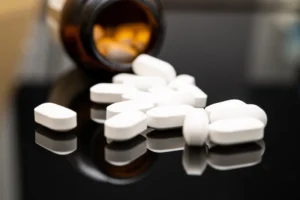Post-traumatic stress disorder is a mental health disorder that develops after an individual has been exposed to or experienced trauma. The majority of adults will experience an average of one traumatic event throughout their lifetime.
Military personnel may experience significantly more. Deployments into war zones place service members at a high risk of exposure to repeated trauma. Without properly managing their trauma, they are at a high risk of developing PTSD when they come back home.
Moreover, many military personnel may not feel the immediate symptoms of PTSD, and as it develops over time, they may be discharged and now, as veterans, find that they are struggling with unexpected symptoms.
PTSD and Alcohol Abuse in Veterans: The Facts
PTSD and alcohol abuse among veterans can be common:
- Among military personnel, alcohol use disorder is the most prevalent substance use disorder.
- 55 to 68 percent of veterans with PTSD have an alcohol abuse disorder.
- 40 to 55 percent of veterans without PTSD have an alcohol abuse disorder.
- According to VA medical records, 63 percent of veterans with any type of substance abuse disorder have PTSD.
- 63 percent of veterans from Iraq and Afghanistan who had substance use disorders met criteria for PTSD.
Why is PTSD and Alcohol Abuse High Among Veterans?
Veterans at high risk of developing PTSD and similar mental health disorders because of deployments, military demands on career and personal lives, and the inability to seek the right type of treatment due to concerns about career progression.
When veterans struggle with substance abuse, they may be reluctant to seek help due to stigma and myths surrounding addiction treatment. For example, a commonly believed myth is that if you hold a security clearance of any kind, even admitting that you might need help for substance abuse can take away your clearance. There continues to be a lot of conflicting information provided to enlisted service members about treatment for mental health disorders and PTSD. As a result, many military personnel try to numb their symptoms and cover them up by using substances such as sleeping pills and alcohol. This can lead to reaching a point of continued dependence or addiction while they still struggle with PTSD.
Continued use of alcohol to mask or numb symptoms of PTSD interferes with the recovery process from traumatic events, and this can even lead to secondary mental health issues like depression and anxiety disorders.
For this reason, it is important to get the right type of treatment for all coexisting problems at the same time.
Treatment for PTSD and Alcohol Abuse
Dual diagnosis treatment from a professional treatment center provides the necessary therapy and life skills to recover from the underlying trauma and psychological effects of PTSD while also dealing with alcohol abuse.
Veterans struggling with PTSD typically use alcohol to try to manage their PTSD symptoms, which include:
- Flashbacks
- Nightmares
- Anxiety
- Hypervigilance
Flashbacks can impede sleep quality, making it difficult for individuals to fall asleep and stay asleep. The same goes for nightmares, but rather than turning to alcohol to induce poor-quality sleep, dual diagnosis treatment can provide talk therapy or holistic treatment to resolve the underlying causes of flashbacks while also offering coping skills for reducing stress and anxiety that exacerbate PTSD symptoms.
Hypervigilance and anxiety can make it difficult to manage everyday tasks, but coping mechanisms from interventions like cognitive behavioral therapy, as well as prescription medications for secondary anxiety disorders, can reduce symptoms and make it easier for veterans to manage daily tasks.
Why Turn to Ava Recovery
Our drug rehab offers drug and alcohol detox and residential inpatient services. These services provide clients the opportunity to disengage from their daily stress and focus completely on recovery. With trauma-informed treatment, we understand that everything someone does in addiction is designed to meet their core needs, and we focus our treatment on meeting those needs without alcohol.
Holistic programs provide necessary coping skills, like our on-site equine-assisted psychotherapy and our combination of DBT and IFS group therapy. During your stay, you can enjoy access to our luxury facility with a pool, professional chef, ice baths, rec room, and workout equipment. But most importantly, we don’t leave you the minute your program ends. Our support continues long after you leave our facility as we monitor your quality of life and continue to provide aftercare resources.
Ava Recovery can help you find the right treatment today if you are struggling with PTSD and alcohol abuse. Contact our team to learn more about our programs for veterans.






